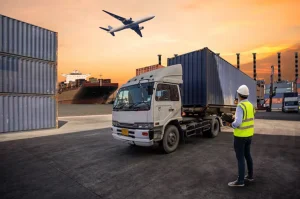Logistics and the movement of goods have always been the lifeblood of commerce, connecting producers to consumers across vast distances. In today’s global marketplace, the efficiency and cost-effectiveness of freight shipping play a pivotal role in business success. As businesses strive to optimize their supply chains, selecting the most efficient and economical freight solutions has become paramount.
The Complexity of Freight Logistics
The world of freight logistics is a labyrinth of choices, from transportation modes to carriers, routes, packaging, and more. The key to success lies in navigating this complexity to find the most cost-effective solutions without compromising on quality or timeliness.
Factors Influencing Cost-Effective Freight Choices
Several factors contribute to making cost-effective freight choices in logistics. These elements play a critical role in determining the overall efficiency and affordability of shipping methods and strategies:
1. Transportation Mode Selection:
-
Distance and Urgency: For shorter distances and urgent deliveries, air freight might be faster but more expensive compared to sea or rail transport for longer distances.
-
Cargo Type: Different modes suit various types of cargo; bulk commodities often fare better with sea freight, while perishables might benefit from air transport.
2. Optimized Routing and Consolidation:
-
Route Optimization: Smart route planning reduces mileage and fuel costs. Utilizing technology for efficient routing minimizes expenses.
-
Consolidation Services: Combining smaller shipments into larger ones (LTL, groupage) helps in cost sharing among multiple businesses.
3. Packaging Efficiency:
-
Space Utilization: Effective packaging reduces wasted space in transport vehicles, leading to lower shipping costs.
-
Weight Consideration: Lightweight yet sturdy packaging ensures goods are protected without adding unnecessary weight.
4. Warehouse Management and Inventory Optimization:
-
Strategic Warehousing: Locating warehouses strategically to minimize shipping distances reduces transportation costs.
-
Inventory Management: Efficient management minimizes storage costs and ensures timely deliveries without excess inventory.
5. Technology Integration:
-
AI and Data Analytics: Predictive analytics and AI-driven systems optimize routes, predict demand, and prevent disruptions, leading to cost savings.
-
Real-Time Tracking: Monitoring shipments in real-time reduces risks and allows for proactive decision-making, reducing potential extra costs.
6. Carrier Selection and Contract Negotiation:
-
Carrier Evaluation: Assessing carriers based on reliability, transit times, service quality, and cost helps in choosing the right partners.
-
Negotiating Contracts: Volume-based negotiations or long-term partnerships with carriers can result in better rates and terms.
7. Regulatory Compliance and Risk Management:
-
Compliance Costs: Adhering to regulations and compliance standards prevents fines or delays that might incur extra expenses.
-
Risk Mitigation: Proactive risk management strategies reduce the likelihood of unforeseen costs due to delays, damages, or disruptions.
8. Market Conditions and External Factors:
-
Fuel Prices and Economic Conditions: Fluctuations in fuel prices or economic shifts impact shipping costs.
-
Global Events: Events like natural disasters, geopolitical tensions, or pandemics can disrupt supply chains, affecting costs.
9. Continuous Evaluation and Adaptation:
-
Continuous Improvement: Regularly evaluating logistics strategies allows for adaptations and optimizations to keep costs in check and enhance efficiency.
Navigating the logistics landscape involves a multifaceted approach. Achieving cost-effective freight choices requires a strategic blend of optimized transportation modes, technology integration, efficient packaging, and smart warehousing.
Toptrans: Pioneers in Cost-Effective Freight Solutions
Toptrans’ Expertise: The Preferred Choice
With 7 years of industry expertise, Toptrans has emerged as a preferred choice in the realm of cost-effective freight solutions. Our extensive network coverage and commitment to quality make us stand out.
7 Years of Industry Expertise
Toptrans’ years of experience reflect a deep understanding of the complexities of international logistics. This expertise ensures efficient and reliable shipping services.
Extensive Network Coverage
Covering various directions, including European Union countries, Turkey, Central Asian States, Ukraine, and China, Toptrans provides alternative and reliable transport solutions amidst geopolitical developments.
Tailoring Services to Individual Cargo Characteristics
Customized Solutions: Meeting Unique Needs
Understanding the unique characteristics of each cargo type allows for tailored and cost-effective solutions that meet specific requirements.
Determining Service Fees
Toptrans evaluates individual cargo characteristics, chosen routes, transportation types, and any additional services required to determine the final service fee. This ensures fairness and transparency.
Handling Special Cargo Types
Toptrans’ expertise extends to handling specialized cargo types, including dangerous and military shipments, with precision and adherence to safety regulations.








